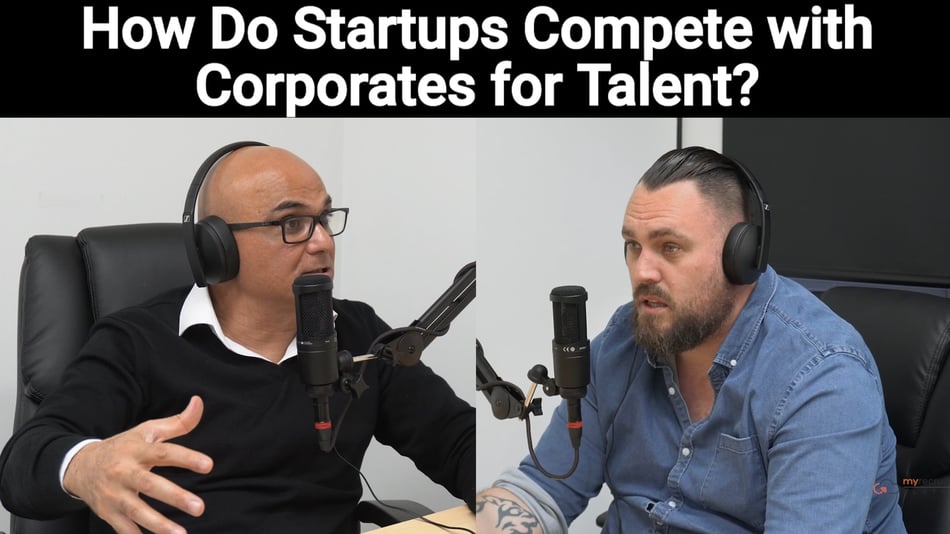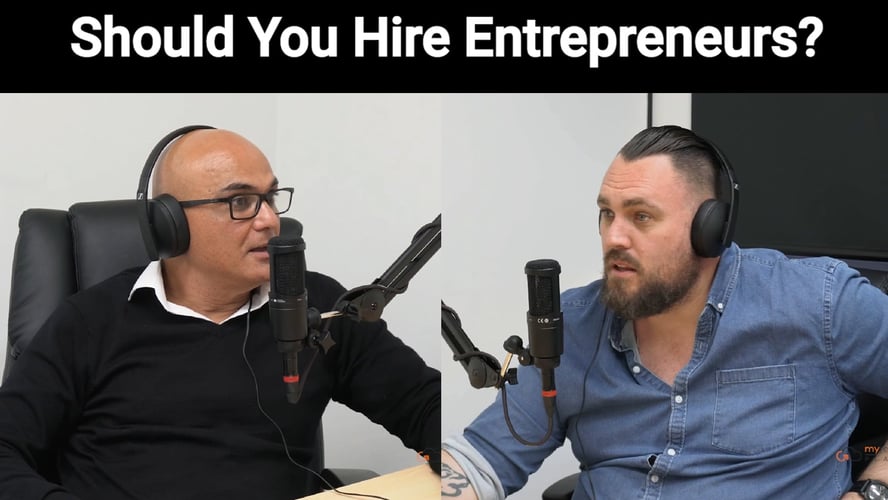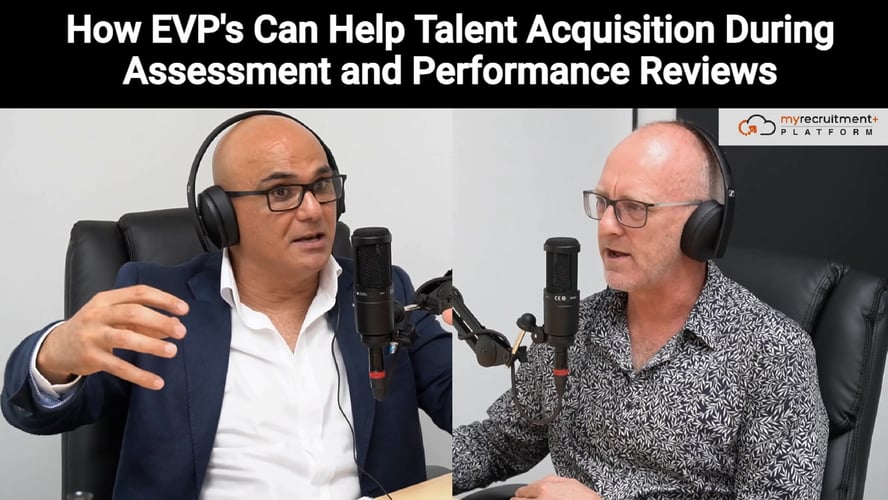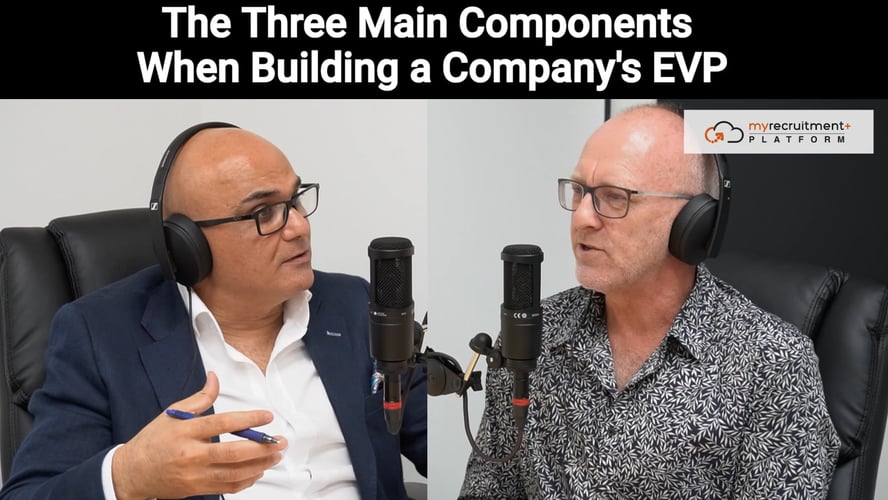In this episode, I sit down with Mike Beeley to discuss how having a strong EVP is essential to building a successful talent acquisition strategy. A powerful EVP is a key building block when marketing a company to potential future employees. Mike Beeley is the CEO of Lightbox Communications and has spent the last 30 years helping global and local organisations understand their EVP and how to market their employment proposition to their target audiences through traditional and emerging media. Here are our insights.
Watch the Video
Prefer reading? Here’s the scoop…
How Does a Strong EVP Help Companies Compete for Talent?
In regards to a company’s talent acquisition strategy, where and when does the EVP (employee value proposition) come to the rescue to give you that competitive advantage to win?
Talent acquisition (TA) is all about communications. It’s not so much about selling. It’s actually about marketing ourselves as an organisation. I think we would all accept we’ve moved beyond selling and beyond flogging jobs to instead, marketing our organisation as a preferred employer. We have lots of lovely phrases like ‘employer of choice‘ or ‘preferred employer‘ which we all get a kick out of using. The EVP is the evidence behind those terms.
How this helps TA is that it gives us the vernacular, or the communication dialogue that we think will most engage our given audience. When we approach TA, and therefore also EVP, we do a lot of research into what people want. That research may be about what’s missing from their lives or what’s missing in the marketplace. It could also be about what’s attractive or unattractive about us as employers.
What do we need to fix?
How do we fix it?
After an EVP project is complete, we end up with a relatively valuable employer value proposition. We’re then sure that when we tell people we’re good, we actually are good.
An EVP Aims to Fill a Gap in the Market
It’s almost like when you’re trying to market a product or service, and you need different assets – you need a bunch of images, video, text, depending on where you’re going to market it. The marketing medium requires different kinds of media assets. All of that has to come from a single ‘think-tank.’ The business agrees on what the value proposition of that product or service is to the consumer. Therefore, all the marketing people start to pick from that pool to build the relevant assets that they need – or repurpose them for a particular marketing medium. It becomes a knowledge pool from which to source creatives. Could we say that an EVP is that same knowledge pool for talent acquisition?
What you’re saying is that a product or service, in marketing terms, is generally designed to fill a gap in the market. The last thing you’d want to do as a business is to present a product that is identical to someone else’s, with worse quality and priced higher. You’re destined for failure if you take that approach. So, we look for gaps in the market when we’re presenting products through marketing, or through TA. We’re offering communications that fill gaps in people’s lives. You may be working for a company that doesn’t appreciate you – they have a weak social conscience. You may be working for a company that has become arrogant in the way it treats employees. They may have lost their way.
The gap that we fill is this sense of purpose and relevance, therefore providing value to people. If we’ve done our homework well enough, then we can present the evidence backing our claims that we can offer this to current and future employees. That’s what we go and market.
There are Two Different Audiences to Target
- The first would be what we refer to as job-seekers or ‘candidates.’ In reality, they represent quite a small component of the available talent – probably only 10%-15% of people are actively looking for work at any particular time. If only ten percent of available talent are genuine current job seekers, then why do we spend all of our time on products and in channels that appeal to only 10% of the market? Undoubtedly we should be spending 90% of our time in other, more relevant areas.
- The second would be people who aren’t job seekers. It demands that we go to other channels to reach them, non-job-seeking channels. The chances are that we’re going to have to reach them with our message several times. Probably six or seven times before it settles on them and agrees with them. Eventually, it will penetrate their psyche enough to think, “Jeepers, there may be something better here than what I’ve currently got”.
That’s when we refer to marketing. Marketing is when you are trying to convince someone that hasn’t already nominated themselves to be part of your assessment process. Due to this, one of the recommendations we make is to stop calling people candidates until they apply to one of our roles. Before they reach that stage, they are just regular folks going about their everyday business.
Why is an EVP so Essential for a Company’s Talent Acquisition Strategy?
It gives us the reasons, the words, the phrases, the pictures and the images that we can use in our employer branding campaigns. We can identify and assess the ones that we know, from research, will resonate with a given audience across whatever channel we happen to use and target.
Missed Part 1 with Mike Beeley?
What’s an EVP and an Employer Brand?
Take your company’s recruitment function to the next level with the #1 end-to-end recruitment and onboarding software platform. Martian Logic – try it for free today.






Blog comments